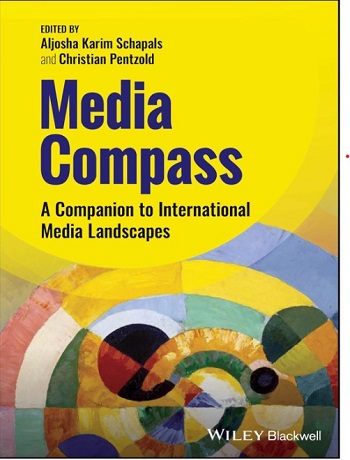Yosuke Buchmeier contributed a chapter on Japan’s media landscape in the newly published Media Compass: A Companion to International Media Landscapes. By exploring historical legacies, political interdependencies, and digital transformation, the author shows that Japan exemplifies a modern media democracy facing the complexities of today’s communication environment. Traditionally, the Japanese media landscape has been an oligopolistic system with strong legacy media and close ties to politics and business, promoting national unity and avoiding controversy, which has contributed to social cohesion and public peace. However, the shift to digital media is driving a quiet transformation, reshaping the information sphere and altering power dynamics between traditional and new media.
In Media Compass: A Companion to International Media Landscapes, an international team of prominent scholars examines both long-term media systems and fluctuating trends in media usage around the world. Integrating country-specific summaries and cross-cutting studies of geopolitical regions, this interdisciplinary reference work describes key elements in the political, social, demographic, cultural, and economic conditions of media infrastructures and public communication. (text from publisher’s homepage: https://onlinelibrary.wiley.com/doi/book/10.1002/9781394196272)
Yosuke Buchmeier (2024) “Japan: Exploring Historical Legacies, Political Interdependencies, and Digital Transformation” in: Aljosha Karim Schapals and Christian Pentzold (eds.): Media Compass: A Companion to International Media Landscapes, Malden, MA: John Wiley & Sons., 348-359, https://doi.org/10.1002/9781394196272.ch33
Students and scholars affiliated with LMU have access via Shibboleth. For those not affiliated with LMU and without access, in case of interest, feel free to contact the author directly for a copy.
